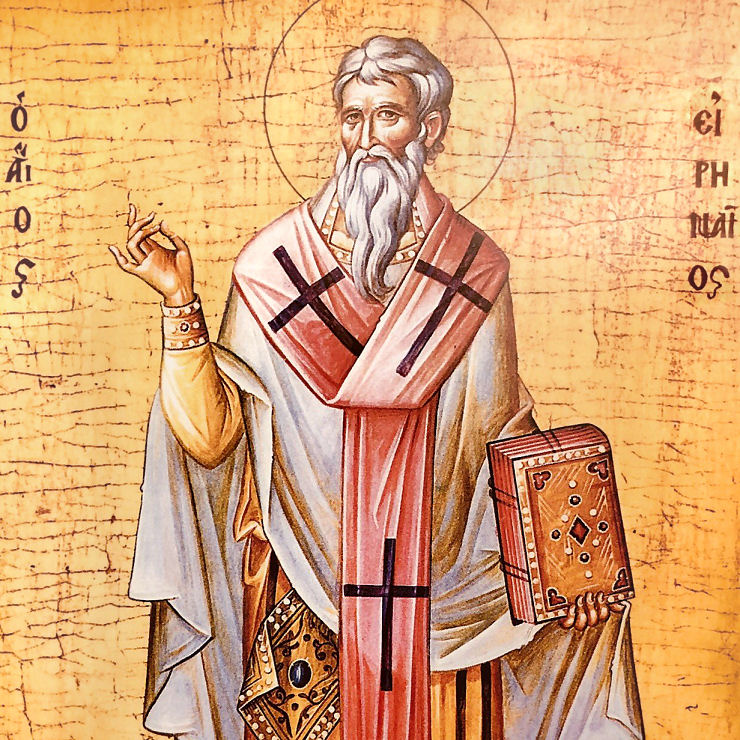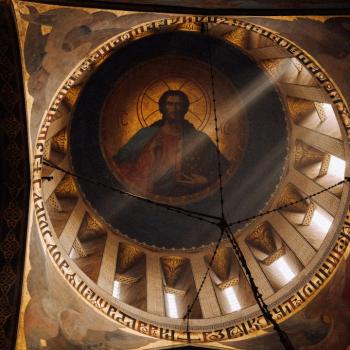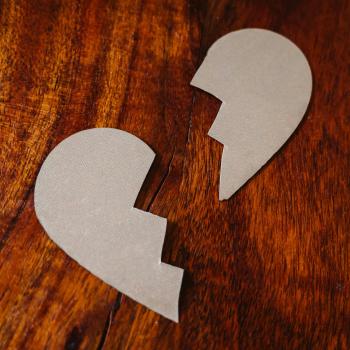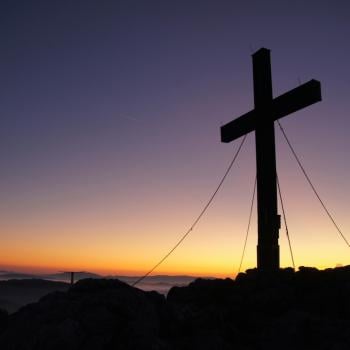Do you believe that God wants you to be happy? Do you believe that the Church wants you to be happy? It seems like so often we look at God’s rules and the Church’s rules as an obstacle to our happiness. Meanwhile, it seems that the world is offering us pleasure without consequences. The Church tells us that this is a lie – and it really is one. The reality is quite the opposite.
Growing up, I once had the opportunity to hike up Half Dome in Yosemite National Park. It was a long walk to get to the base of the granite structure that iconically represents Yosemite in a way that no other geological formation does. We had been able to hike everything up to that point without equipment, but to go up the last little stretch, there were safety cables marking the path going up. We had to put on leather gloves to protect our hands and getting up that last little stretch was a mixture of walking up and pulling on the cables to help sustain our weight.
Moral Precepts
The moral precepts given to us by God and his Church are like that. They teach us the right way and help us hold on to what is good so that we don’t fall off into the precipice. We can complain that they seem constricting, but in reality they are all that keeps us from falling into the abyss.
Why are we tempted, then, by the great lie? In today’s Gospel, Jesus corrects his disciples when they want to rebuke a man who is casting out demons in the name of Jesus. Jesus reminds them that “whoever is not against us is for us” (Mk. 9:40). There are so many demons who are attacking us nowadays. I think one of the greatest ways that they make their presence known is through the perversion of doctrine. They do not want us to be happy.
St. Irenaeus, a second-century bishop from Lyons, is famous for defending orthodoxy in his book Adversus Haereses, arguing for the reality of Christ’s human incarnation and attacking the heresies of Gnosticism. He refers to the Devil as a spirit of apostasy, as almost the personification of apostasy itself. This makes sense because “apostasy” is “the total repudiation of the Christian faith” (Catechism of the Catholic Church, 2089), in much the same way that the Devil rebels against God. Now, the curious thing about the Devil is that he cannot do anything directly to God, since God is all-powerful. So, he is reduced to attacking us, God’s beloved creatures.

Creation
Where do the demons, the followers of Satan, the Great Apostate, try to spready apostasy and sin among us? They take special care to specifically attack the theology of creation. When we hear the Creation story in Genesis, we hear repeatedly how God saw that “it was good.” Satan, by his rebellion, turns this beauty of creation upside down, and tries to turn what is good into something evil, repugnant, and horrifying. Demons try to take the objective word of God expressed through Creation, and make it into something ephemeral and passing.
God has given us our bodies to glorify him. The Devil tries to take our bodies and change their meaning and significance radically. He tries to trick us into thinking that everything is about our own search for pleasure. He tries to repeat in us his own fall from grace.
The Church teaches that Satan was at first a good angel, made by God. “The devil and the other demons were indeed created naturally good by God, but they became evil by their own doing” (Catechism of the Catholic Church, 391).
The Devil takes something that is good, our bodies, and tries to turn it into a way to get back at God. He tries to get us to repeat the refrain of a toddler: “you’re not the boss of me.” This is basically the message he put in the minds and hearts of Adam and Eve which led to their rebellion in the Garden. He was interested in their destruction, not that they could be happy.
Freedom and Truth
Satan also actively works to divorce freedom from truth. We hear the refrain of how important “freedom” is constantly, but often it is missing the balancing values of truth and responsibility. Whenever we are thinking of “freedom” without considering consequences, we are probably listening to a lie of the devil. We are participating in his great apostasy.
Learning to Accept Help
To fight these lies, we should learn from Christ in the Gospel to accept help from other quarters. For us, it is of course important to be Catholic. And yet, we can often find allies beyond the doors of our churches. For example, Saint John Paul II and evangelist preacher Billy Graham forged a strong friendship over the years. Rather than focusing on what divided them, they focused on spreading Christ’s message in the world. When Pope John Paul II passed, away, Billy Graham said the following:
And tonight, I have a very strange feeling of loss. I almost feel as though one of my family members has gone. I loved him very much and had the opportunity of discussing so many things with him. And we wrote each other several times during the years (Billy Graham on “Larry King Live”, April 2, 2005).
Who are people that you know, who even though they are not explicitly Catholic or Christian, nevertheless are helping to build up God’s Kingdom in this world and cast out the demons of selfishness, perversion of creation, and a divorce of freedom from truth? How can you help to build up others in a search for truth and freedom, which ultimately leads to God? This is what can make us happy.
In the sanctuary of his conscience, man’s most secret core, God makes his voice heard and his law known, that law which reaches its perfection in the love of God and neighbour as Jesus taught (cf. Gaudium et spes, n. 16). By following this law in the light and power of the Holy Spirit, man achieves his full freedom (Pope John Paul II, 2 September 1998).
Subscribe to the newsletter to never miss an article.














